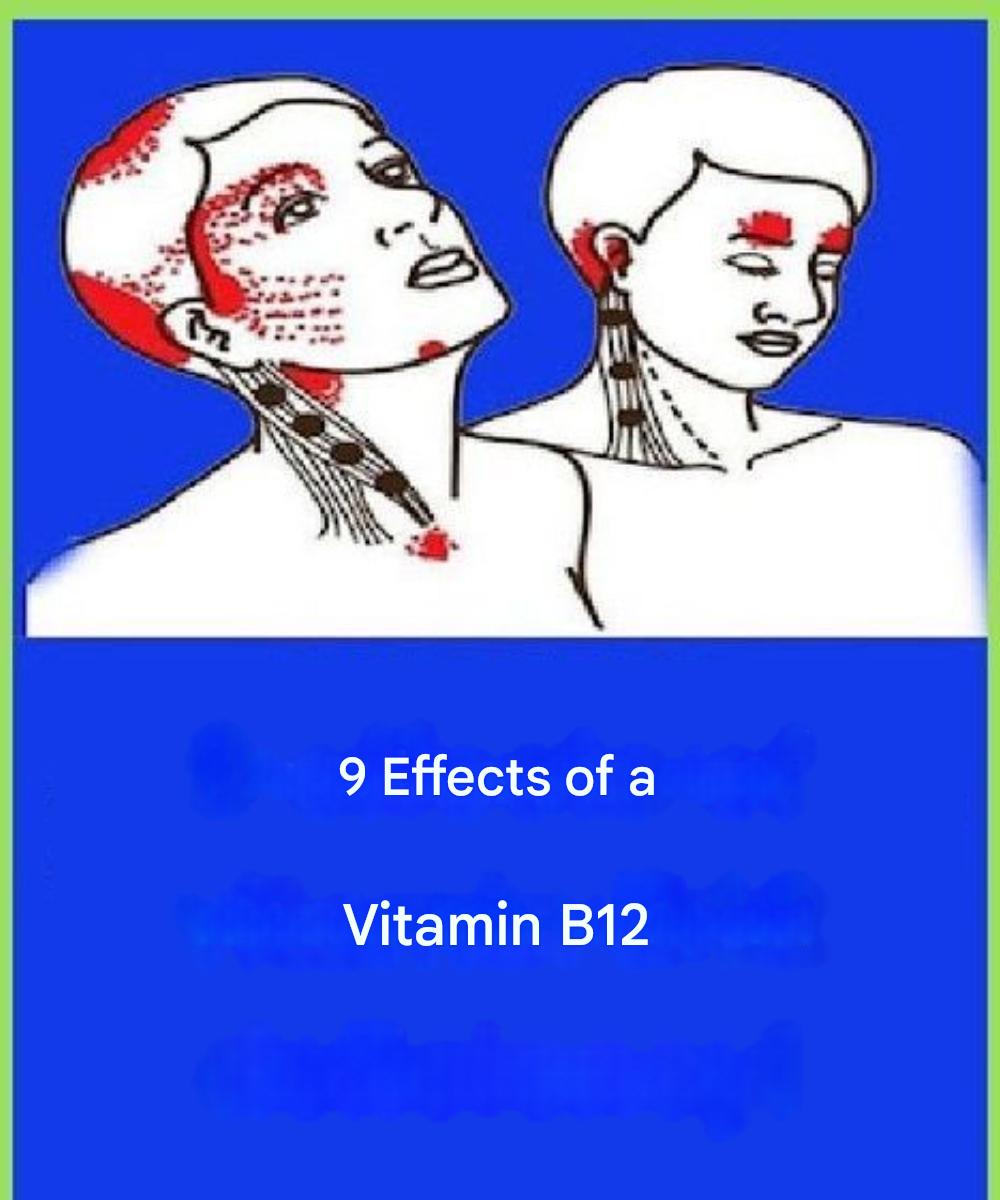Vitamin B12, also known as cobalamin, is an important nutrient that plays a key role in many bodily functions, including red bl00d cell formation, nerve health, and DNA synthesis.
A deficiency in vitamin B12 can lead to a variety of effects, some of which may be subtle at first, but can become severe over time if left untreated. Below, we explore nine common effects of vitamin B12 deficiency and why it’s important to recognize the signs early.
1. Fatigue and weakness
One of the earliest and most popular effects of a B12 deficiency is the constant feeling of sadness or weakness. This happens because without enough B12, your body can’t make enough healthy red bl00d cells.
2. Pale or yellowish skin
If your skin looks unusually pale or has a slight yellow tinge, it could be due to a lack of vitamin B12. This condition occurs when red bl00d cells break down more easily (a process called hemolysis) and release bilirubin, which gives the skin a yellowish appearance.

3. Shortness of breath and dizziness
When red blood cell counts drop, your body struggles to get enough oxygen to your tissues, leading to shortness of breath — especially during physical activity. You may also experience dizziness or lightheadedness, especially if you get up quickly.
